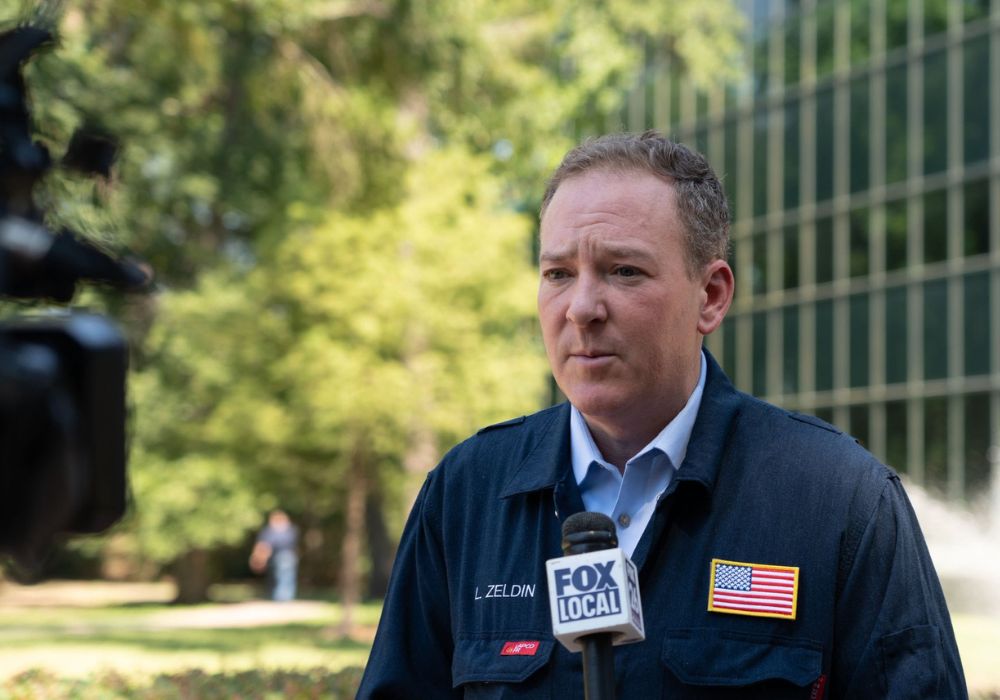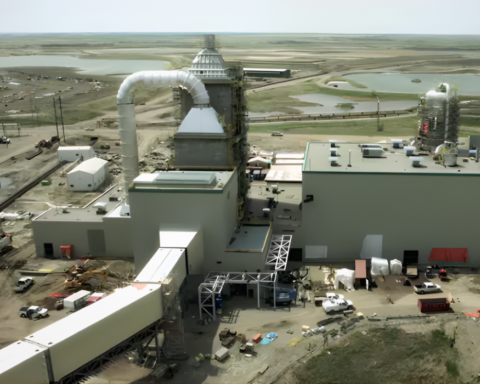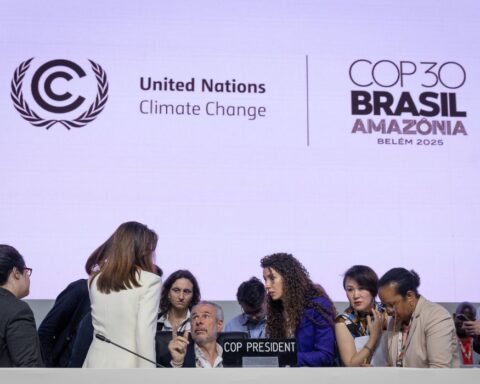This month, on a Friday afternoon when everybody was getting ready for the weekend, the Trump administration made one of its most environmentally and economically damaging moves to date.
The Environmental Protection Agency announced that it wants to stop requiring 8,000 facilities, including refineries, oil wells, power plants and landfills, to report their greenhouse gas emissions. EPA administrator Lee Zeldin calls the reporting program “nothing more than bureaucratic red tape that does nothing to improve air quality.” He is dead wrong on two counts.
First, the focus on air quality is a red herring. While they do not directly affect the air we breathe, the EPA had previously rightly considered greenhouse gas emissions to be an endangerment to human health, a stance that the U.S. Supreme Court supported. This should be obvious to anyone who has experienced smoky summer days in North America or Southern Europe due to more intense wildfires, whose frequency has increased because of climate change.
The World Meteorological Organization has estimated that between 1970 and 2021 climate-related weather events such as floods, fires and storms caused more than two million deaths and US$4.3 trillion in economic losses. The losses from these disasters will only accelerate as the planet warms up. Researchers at the Institute for Sustainable Finance, at Queen’s University, have calculated that the total capital output lost to climate-related disasters in Canada could range from $2.8 trillion by the end of the century under a 2°C warming scenario to almost double that amount at $5.5 trillion under a 5°C scenario.
Which brings us to the second point. Far from useless “red tape,” collecting GHG emissions data is the backbone of environmental and economic accountability. Data are essential for financial markets and capital allocation. If we do not measure, we cannot manage. Without reporting, the public, investors and even companies themselves will fly blind. We cannot make any progress transitioning to a more sustainable economy if we do not have accurate emissions information.
The Climate Policy Initiative reports that global climate finance is increasing despite the headwinds against ESG (environmental, social, governance) issues. Climate finance exceeded US$2 trillion in 2024, up from $812 billion in 2018. While the United States goes all in hindering the adoption of renewable energy, capital will increasingly flow to countries that are creating sustainable innovations.
The United States’ self-imposed roadblock on climate innovations will have negative consequences for the planet and prosperity. Friday’s announcement is part of a broader pattern. The Trump administration has previously moved to repeal the “endangerment finding” that allowed greenhouse gas regulations such as the EPA’s emissions reporting requirement. It plans to pull out of the Paris climate agreement. It even has plans to get rid of NASA’s GHG-monitoring satellites. Now it wants to turn off the data pipeline, which is the lifeblood for decision-making in business and government.
Ignoring emissions does not erase them. The physical reality remains the same. Eventually, we all pay the price – with lost homes, damaged supply chains and rising health risks. In the worst case, the economic and human costs of climate change will be enormous.
Even industry leaders see the danger of the EPA’s proposal. The Carbon Capture Coalition warned, “This announcement from EPA will not advance carbon storage . . . This proposed rule endangers millions of dollars in investments from American businesses.” Killing transparency does not help innovation. It undermines it.
What is at stake? The Greenhouse Gas Reporting Program covers the United States’ heaviest emitters. Ending it will be like driving without a dashboard. We would not accept shutting financial reporting because accounting standards are “burdensome.” Why should we accept shutting down the emissions data that helps to guide our economic future?
The EPA’s job is to protect public health and the environment. The data it collects plays a crucial role in producing accurate information for investors. With this announcement it is failing in that responsibility. Transparency is not a burden. It’s the first step toward accountability, innovation and eventually a more sustainable and prosperous economy.
Yrjö Koskinen is director of research at the Institute for Sustainable Finance at Smith School of Business, Queen’s University, and BMO Professor of Sustainable and Transition Finance at the Haskayne School of Business, University of Calgary.
The Weekly Roundup
Get all our stories in one place, every Wednesday at noon EST.







